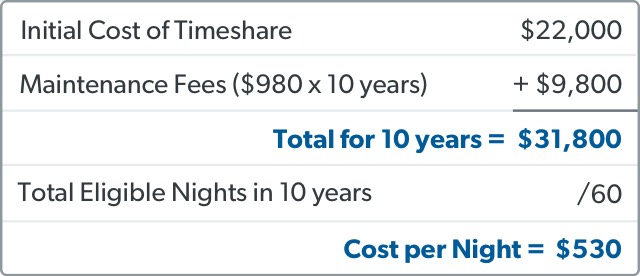Some timeshares use "versatile" or "drifting" weeks. This arrangement is less rigid, and permits a buyer to pick a week or weeks without a set date, but within a specific period (or season). The owner is then entitled to schedule his/her week each year at any time throughout that time period (topic to availability).
Because the high season may stretch from December through March, this gives the owner a little bit of getaway flexibility. What kind of home interest you'll own if you purchase a timeshare depends upon the kind of timeshare purchased. Timeshares are generally structured either as shared deeded ownership or shared rented ownership.
The owner gets a deed for his or her portion of the unit, specifying when the owner can use the residential or commercial property. This indicates that with deeded ownership, lots of deeds are released for each property. For example, a condo system offered in one-week timeshare increments will have 52 overall deeds when completely sold, one provided to each partial owner.
Each lease contract entitles the owner to utilize a specific residential or commercial property each year for a set week, or a "floating" week throughout a set of dates. If you buy a leased ownership timeshare, your interest in the home usually expires after a specific term of years, or at the current, upon your death.
This indicates as an owner, you may be restricted from offering or otherwise moving your timeshare to another. Due to these aspects, a rented ownership interest might be bought for a lower purchase cost than a similar deeded timeshare. With either a rented or deeded type of timeshare structure, the owner purchases the right to utilize one specific residential or commercial property.
To provide higher versatility, lots of resort developments get involved in exchange programs. Exchange programs allow timeshare owners to trade time in their own property for time in another participating residential or commercial property. For instance, the owner of a week in January at a condo unit in a beach resort might trade the residential or commercial property for a week in a Check over here condo at a ski resort this year, and for a week in a New york city City accommodation the next (how do you get out of a timeshare contract).
Typically, owners are limited to selecting another residential or commercial property categorized similar to their own. Plus, additional fees prevail, and popular residential or commercial properties may be difficult to get. Although owning a timeshare methods you will not need to throw your cash at rental lodgings each year, timeshares are by no methods expense-free. Initially, you will need a piece of cash for the purchase cost.
What Does How To Invest In A Timeshare Do?
Because timeshares rarely preserve their value, they will not qualify for financing at many banks. If you do find a bank that concurs to finance the timeshare purchase, the interest rate makes certain to be high. Alternative funding through the designer is generally readily available, however again, just at high rates of interest.
And these fees are due whether the owner utilizes the home. Even worse, these fees commonly intensify constantly; sometimes well beyond a budget friendly level. You may recover some of the costs by leasing your timeshare out during a year you do not utilize it (if the rules governing your specific property permit it).
Acquiring a timeshare as an investment is rarely a great idea. Given that there are many timeshares in the market, they seldom have good resale capacity. Rather of appreciating, a lot of timeshare depreciate in value once purchased. Numerous can be tough to resell at all. Rather, you should consider the worth in a timeshare as a financial investment in future vacations.

If you trip at the exact same resort each year for the exact same one- to two-week period, a timeshare may be a great way to own a property you love, without incurring the high costs of owning your own house. (For information on the costs of resort own a home see Budgeting to Buy a Resort House? Expenses Not to Overlook.) Timeshares can also bring the comfort of understanding just what you'll get each year, without the inconvenience of reserving and renting lodgings, and without the worry that your favorite location to stay will not be offered.
Some even use on-site storage, allowing you to conveniently stash equipment such as your surfboard or snowboard, avoiding the trouble and expenditure of hauling them backward and forward. And just since you may not utilize the timeshare every year does not mean you can't enjoy owning it. Lots of owners delight in regularly lending out their weeks to buddies or loved ones.

If you don't wish to vacation at the exact same time each year, flexible or floating dates supply a good alternative. And if you 'd like to branch out and explore, consider utilizing the home's exchange program (make sure an excellent exchange program is provided before you purchase). Timeshares are not the finest solution for everybody (what happens if i stop paying my timeshare maintenance fees).
Also, timeshares are normally unavailable (or, if available, unaffordable) for more than a couple of weeks at a time, so if you normally holiday for a 2 months in Arizona during the winter season, and invest another month in Hawaii during the spring, a timeshare is probably not the very best choice. Furthermore, if saving or generating income is your top concern, the absence of investment capacity and continuous expenses included with a timeshare (both talked about in more detail above) are guaranteed drawbacks.
The Facts About Where To Sell Timeshare Revealed
The purchase of a timeshare a method to own a piece of a getaway residential or commercial property that you can utilize, normally, as soon as a year is frequently a psychological and impulsive decision. At our wealth management and preparation company (The H Group), we occasionally get concerns from customers about timeshares, many calling after the truth fresh and tan from a getaway questioning if they did the ideal thing.
If you're thinking about purchasing a timeshare, so you'll have a location to getaway regularly, you'll want to comprehend the different types and the pros and cons. (: Timely Timeshare Tips for Households) Initially, a little background about the four types of timeshares: The purchaser usually owns the rights to a particular system in the exact same week, year in and year out, for as long as the agreement stipulates.
With a fixed-rate timeshare, the owner can lease his block of time or trade with owners of other properties. This type of arrangement works best if you have an extremely preferable location. The buyer can schedule his own time throughout a provided period of the year. This option has more flexibility than the fixed week version, but getting the precise time you want may be difficult when https://blogfreely.net/arwynecg9w/timeshare-getaway-strategies-have-actually-been-around-in-the-u-s other shareholders get much of the prime durations.
The designer preserves ownership of the residential or commercial property, nevertheless. This is similar to the drifting timeshare, but buyers can remain at various locations depending on the quantity of points they've collected from buying into a specific property or acquiring points from the club. The points are used like currency and timeslots at the home are scheduled on a first-come basis.
Thus, the usage of a very costly residential or commercial property could be more budget-friendly; for one thing you don't require to fret about year-round upkeep. If you like predictability, you have actually a guaranteed getaway destination. You may have the ability to trade times and places with other owners, allowing you to travel to new places.